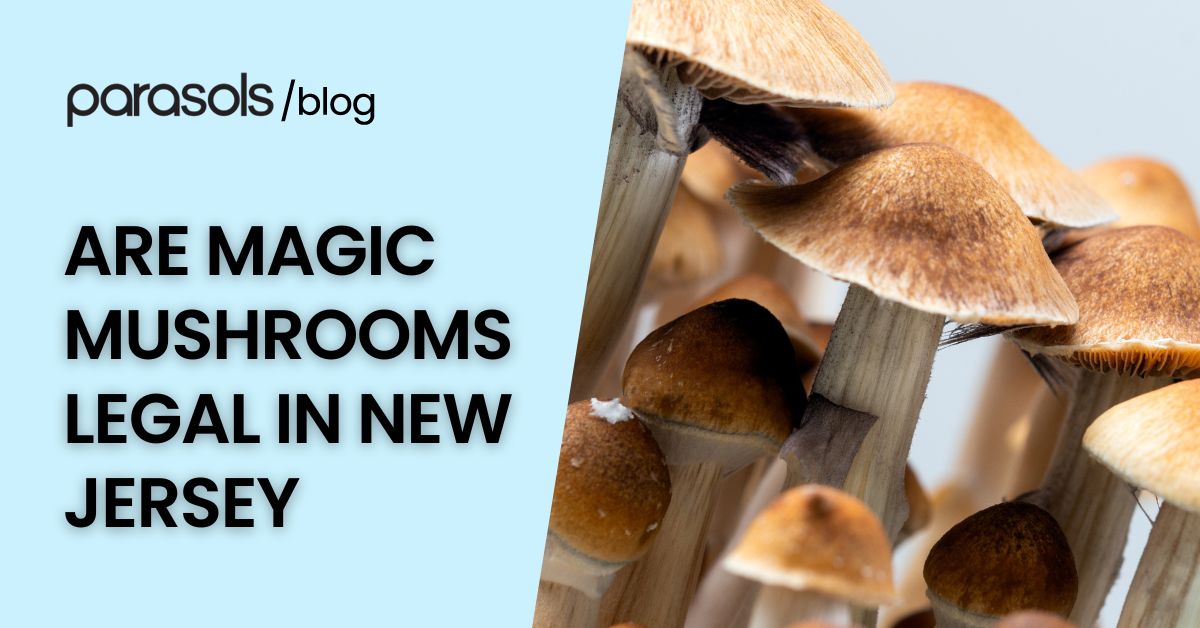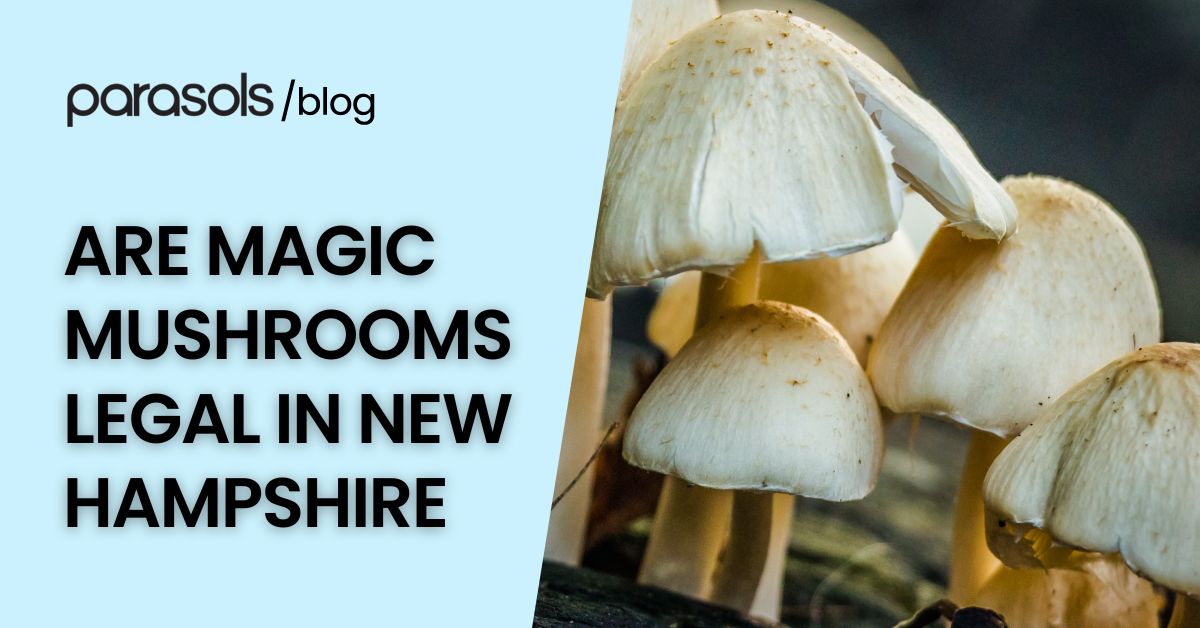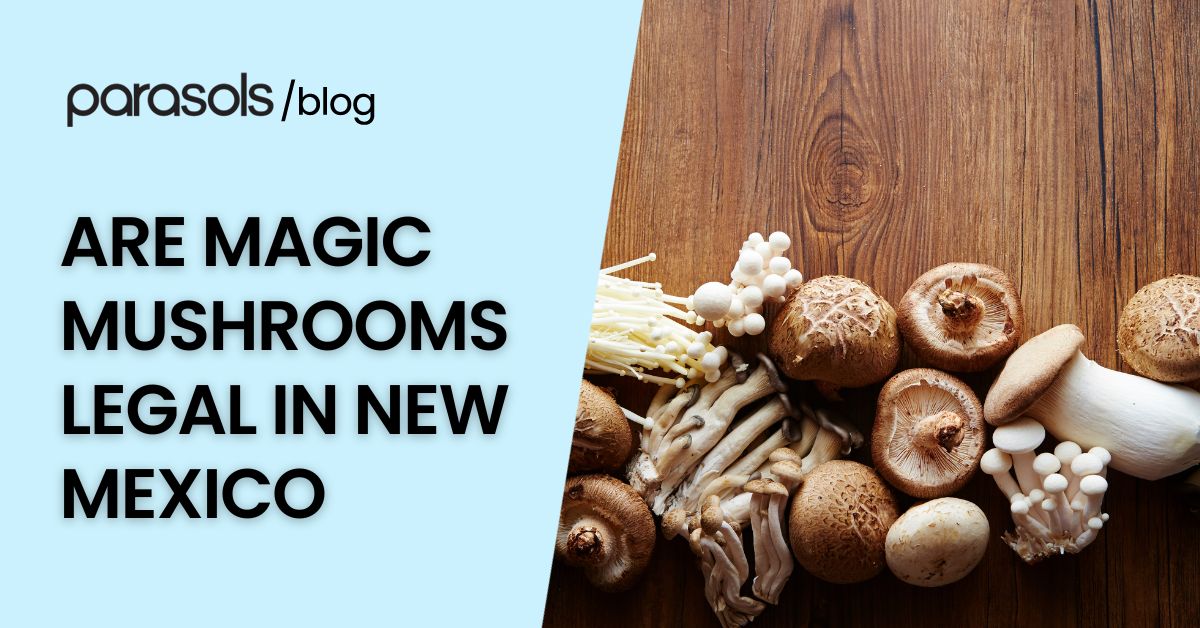As interest in alternative treatments for mental health grows, many New Jersey residents are asking where things stand with magic mushrooms. With ongoing changes at both the state and federal level, understanding the legal status and therapeutic potential of psilocybin is more important than ever. Here's what you need to know.
Key Takeaways
- Psilocybin mushrooms remain illegal in New Jersey under state and federal Schedule I classification.
- Possession of less than one ounce is treated as a disorderly persons offense, carrying reduced penalties compared to past felony charges.
- Larger amounts, cultivation, or distribution still bring severe felony consequences.
- Senate Bill S2283 proposes a framework for licensed psilocybin-assisted therapy, but it excludes recreational use and home growing.
- If passed, the Department of Health would have 18 months to create regulations before therapy access begins.
- Legal alternatives in New Jersey include ketamine-assisted therapy, traditional mental health care, and retreats in states or countries with regulated psilocybin use.
What are Magic Mushrooms?
Magic mushrooms are a group of fungi that contain psilocybin, an active compound known for its hallucinogenic effects. When ingested, psilocybin converts into psilocin, which affects mood, perception, and cognition.
These psychedelic substances have been used for centuries in spiritual and medicinal contexts and are now gaining attention for their potential in treating mental health conditions like depression, anxiety, and post traumatic stress disorder under controlled therapeutic settings.
Are Magic Mushrooms Legal in New Jersey?

Magic mushrooms are currently illegal in New Jersey. Psilocybin is classified as a Schedule I controlled substance under both state and federal law. However, possession of less than one ounce is treated as a disorderly persons offense, not a felony. A proposed bill aims to legalize psilocybin-assisted therapy through licensed facilities, but recreational use and personal possession remain prohibited.
Legal Matters on Magic Mushrooms in NJ
As public interest in psilocybin’s therapeutic benefits grows, New Jersey is at a crossroads. Here’s a detailed breakdown of current laws and emerging regulations affecting magic mushrooms in the state.
Current Legal Status under State and Federal Law
Psilocybin mushrooms remain classified as a Schedule I controlled substance under both New Jersey law and the federal Controlled Substances Act. This classification makes cultivation, possession, or distribution illegal with serious criminal penalties.
Reduced Penalties for Small-Scale Possession
In February 2021, New Jersey downgraded possession of up to one ounce to a disorderly persons offense. Convictions can result in up to six months in jail or a fine up to $1,000. Prior to the change, such possession was a third-degree felony with penalties up to five years imprisonment and significantly higher fines.
Penalties for Larger Quantities and Other Offenses
While small-scale possession now carries lesser penalties, possessing more than one ounce, distributing, or cultivating psilocybin mushrooms remains classified as a serious felony. Penalties in these cases include up to ten years in prison and substantial fines—up to $150,000 for larger quantities.
Proposed Therapeutic Framework: Bill S2283
Senate Bill S2283 (Psilocybin Behavioral Health Access and Services Act) is moving through committee. It proposes a regulated framework for psilocybin-assisted therapy in licensed service centers, with components including:
- Licensed service centers and facilitators
- Preparation, administration, and integration sessions
- An advisory board with an 18-month establishment period
- Social equity program and expungement for past convictions
What This Bill Doesn’t Do
S2283 does not legalize recreational use or personal cultivation—even when therapeutic access is approved. Home growing, personal possession, or unregulated distribution would remain illegal outside licensed service centers.
Next Steps and Timelines
- The bill has passed relevant Senate committee votes, including Senate Health, Human Services, and Senior Citizens.
- If enacted, New Jersey’s Department of Health would have 18 months to develop regulations, licensing procedures, and oversight structures.
- Until final approval and implementation, psilocybin remains illegal for all non-medical uses.
Consequences of Magic Mushroom Possession in NJ
Possession of magic mushrooms in New Jersey carries legal consequences that vary based on the amount involved:
- Small amounts (≤ 1 ounce): Possession is classified as a disorderly persons offense, punishable by up to 6 months in jail and a $1,000 fine.
- Larger quantities (> 1 ounce): Treated as a felony—potentially second-degree—with prison terms up to 10 years and fines reaching $150,000.
- Cultivation or distribution: Growing or selling psilocybin mushrooms leads to severe charges under Schedule I laws, often classified as a third-degree felony or higher.
-
Possession near schools: Being caught with mushrooms near schools or school buses can result in enhanced penalties, such as mandatory community service, even for minor offenses.
While penalties for small amounts have been reduced, significant legal risks remain for larger quantities or distribution-related activity.
Alternatives to Magic Mushrooms in New Jersey

If you're seeking therapeutic or mental health support without using psilocybin, there are several legal and accessible alternatives available across New Jersey:
- Ketamine-assisted therapy: Ketamine clinics and therapy providers offer treatment for depression, anxiety, PTSD, and OCD using medically supervised, low-dose ketamine. Sessions include preparation and integration with licensed mental health professionals.
- Guided psychedelic experiences: Some facilitators offer legal, non-psilocybin sessions using approved natural substances or breathwork. These include structured support before and after the experience to enhance mental health outcomes.
- Traditional mental health care: Therapy, psychiatric services, and support groups remain essential and widely accessible. Many providers now integrate evidence-based modalities that support holistic mental health care.
-
Retreats outside New Jersey: For those seeking psilocybin experiences legally, some travel to states like Oregon or Colorado, or international destinations where supervised therapeutic use is permitted under regulated frameworks.
Final Thoughts
While magic mushrooms remain illegal in New Jersey, the legal and medical landscape is evolving. With reduced penalties, proposed legislation for therapeutic access, and growing awareness of psilocybin’s potential, the state is moving cautiously toward reform.
In the meantime, New Jersey residents interested in alternative mental health treatments can study legal options already available. Stay informed, and consider speaking with a professional if you're learning therapeutic or wellness pathways.
Frequently Asked Questions
Can I legally grow psilocybin mushrooms at home in New Jersey?
No. Cultivating psilocybin mushrooms is illegal in New Jersey and considered a felony, even for personal or medical use.
Are there any legal psychedelic treatment centers in New Jersey?
As of now, there are no licensed psilocybin service centers in the state. However, ketamine clinics offering psychedelic-assisted therapy are legally operating.
Will psilocybin therapy be covered by insurance if legalized?
It’s unclear. If psilocybin-assisted therapy becomes legal, coverage will likely depend on insurance providers and whether it's approved for medical use under state and federal law.
Can past convictions for psilocybin possession be expunged?
If Senate Bill S2283 passes, it includes provisions for expunging certain past convictions related to psilocybin possession.
How long would it take for legal psilocybin therapy to become available if the bill passes?
The proposed bill includes an 18-month rollout period for establishing regulations, licensing, and infrastructure before therapy services could legally begin.



Leave a comment
This site is protected by hCaptcha and the hCaptcha Privacy Policy and Terms of Service apply.